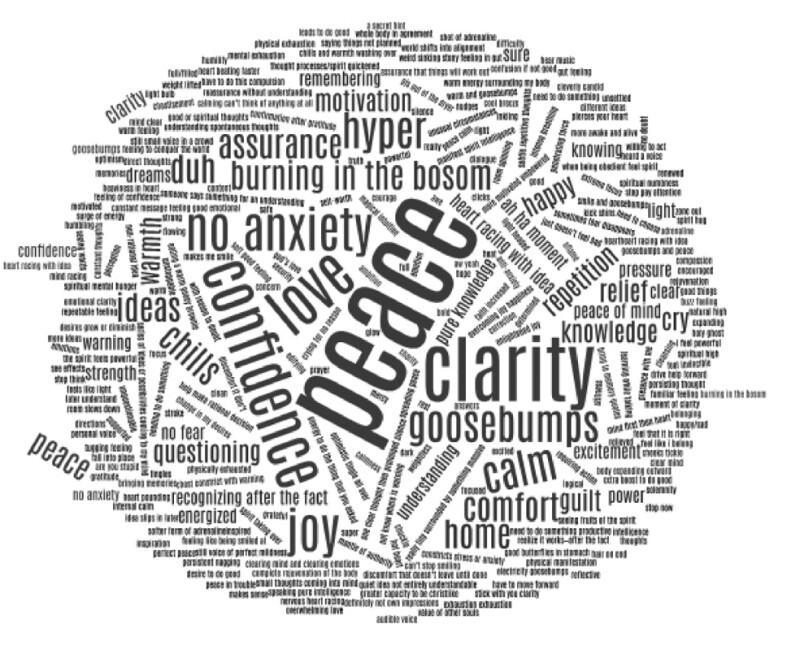When we talk about receiving answers from the Holy Ghost, we often focus on two possibilities: 1) experiencing a “burning in the bosom,” or 2) having a “stupor of thought.” Both frameworks come from Doctrine and Covenants 9:7–9.
“I think that we consider [those verses as] a model for revelation, but it is essential that we recognize that [they are] not the only model,” says Janiece Johnson, author of Revelation: Themes in the Doctrine and Covenants.
Janiece recently joined the Magnify podcast to discuss how understanding the full context of Doctrine and Covenants 9 can expand our capacity to recognize revelation.
The ‘Tyranny of a Burning Bosom’
It’s important to remember that Doctrine and Covenants 9 was a revelation for one person in a specific situation.
“The context of section 9 is incredibly important because this is specifically to Oliver Cowdery, who is trying to translate,” Janiece says. “He has seen Joseph receive this miraculous gift and be able to translate the Book of Mormon, and he wants to do the same thing. And the Lord gives him this pattern.”
Janiece explains that while considering something, asking the Lord, and looking for a “burning in the bosom” or “stupor of thought” is one pattern for receiving revelation, it may not be helpful for every person or situation:
“Now, as a pattern, maybe this works. But maybe it doesn’t, and what I experienced growing up was what I like to call today ‘the tyranny of a burning bosom’ because that was the only model I ever heard. And it didn’t fit my own experience, so I had to learn for myself. …
“So, I think we need to put some limits on section 9. It is possible that this [section] is very specific to the process of translation.”
What Doctrine and Covenants 9 Doesn’t Say
Another reason Doctrine and Covenants 9 may not discuss the full picture of revelation is because it doesn’t include the possibility of the Lord giving a direct “no” answer.
“There have been times [in scripture] when the Lord said, ‘No, nope, that is not the right thing’—a clear ‘no’—whereas a ‘stupor of thought’ is really just nothing, right?” Janiece says.
In addition, Doctrine and Covenants 9 doesn’t touch on other ways of receiving a revelatory “yes” outside of a “burning in the bosom.” But we know from the scriptures and personal experiences that we can receive spiritual confirmations in many different ways.
For example, President Dallin H. Oaks shared: “What does a ‘burning in the bosom’ mean? Does it need to be a feeling of caloric heat, like the burning produced by combustion? If that is the meaning, I have never had a burning in the bosom.”
He clarified that rather than focusing on a single “burning” feeling, we can expand our understanding of this phrase to include all the fruits of the Spirit: “The burning of the bosom, I suggest, is not a feeling of caloric heat like combustion but a feeling of peace and warmth and serenity and goodness.”
Over several years as a professor at Brigham Young University in Provo and in Rexburg, Janiece collected student responses over the years about experiences with personal revelation. She started noticing common themes, which she outlined in a word cloud in her book:

“Of course, we see a number of commonalities, general principles that work for various people, like peace or an absence of anxiety,” she wrote. “But there are many other unique responses, such as feeling ‘like warm pjs just out of the dryer,’ ‘feeling a kick in the shins,’ or a ‘cleverly candid’ response.”
Another Pattern for Recognizing Revelation
For Janiece personally, another framework has been more helpful for discerning the Spirit’s influence: “intelligence flowing into you.” This phrase comes from a quote by the Prophet Joseph Smith:
“A person may profit by noticing the first intimation of the spirit of revelation; for instance, when you feel pure intelligence flowing into you, it may give you sudden strokes of ideas, so that by noticing it, you may find it fulfilled the same day or soon; (i.e.) those things that were presented unto your minds by the Spirit of God, will come to pass; and thus by learning the Spirit of God and understanding it, you may grow into the principle of revelation, until you become perfect in Christ Jesus” (emphasis added).
Ultimately, there are many ways to experience the Spirit’s influence. And while one person may sense a burning in the bosom as “a feeling of caloric heat,” another might notice a sense of clarity or new ideas flowing to their mind.
As you “grow into the principle of revelation,” Janiece recommends that you seek the Lord’s guidance to explore what receiving the Spirit looks like for you:
“In section 9, he says, ‘You [will] feel that it is right.’ Now, no one else can tell us what that feeling is. … I certainly can see sometimes when the Spirit affects people, but I don’t know precisely what it is that they’re feeling. And each of us has to learn that ourselves.”
Hear more from Janiece Johnson on the entire Magnify episode here. For more resources on recognizing personal revelation, check out the articles below:
▶ 1 word we overuse when teaching about the Holy Ghost
▶ Elder Bednar on why you don’t need to wait until you feel the Spirit to teach
▶ 3 ways we may misunderstand ‘Moroni’s promise’ (and how the truth helps build testimony)



